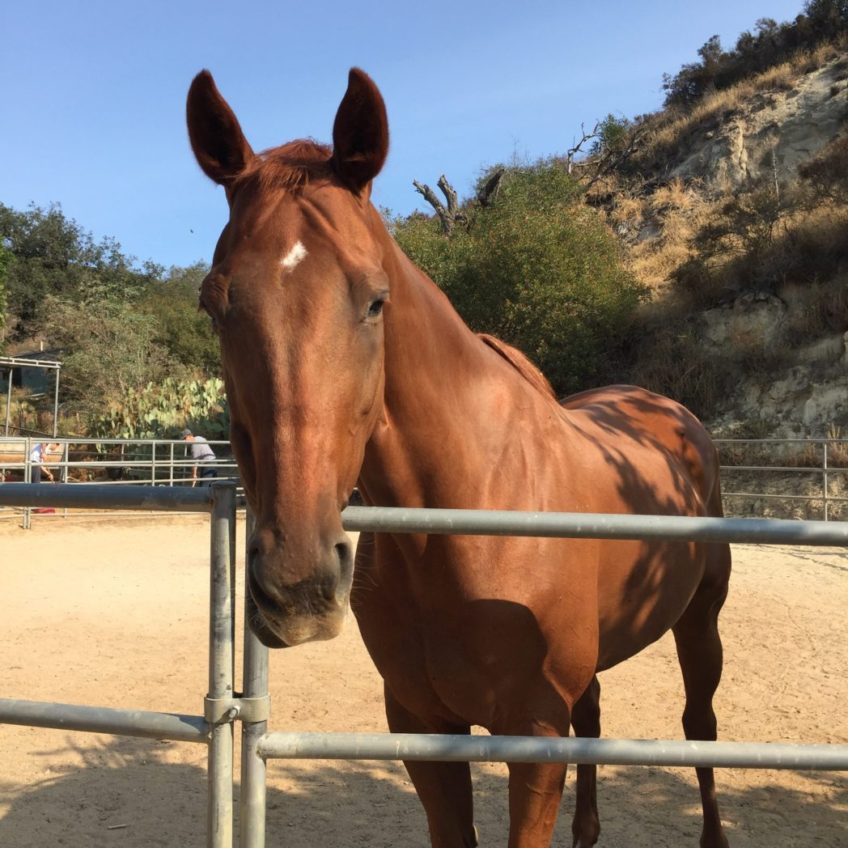Here at Hanaeleh, we spend nearly all of our time caring for our rescued horses. We’ve been doing this for 10 years (!) and we’ve seen a lot along the way. Very often, we receive questions from our community about horse care and many come from our lively Facebook page. One of the most common is “My horse is losing weight. What can I do?”
In fact, just this week, one of our Facebook fans reached out to describe her situation and ask our opinion on what she could do to keep her horses’ weight at a healthy level:
“I’m having issues with 2 of 16 retired horses losing weight. One is only 23, the other guy is 27. Teeth are good, worming rotation, etc, etc. They are fed twice a day with excellent feed/alfalfa hay ..salt blocks, mineral blocks …any suggestions? Horses go in and out of the arena (not stalled). Water is automatic, the tub is cleaned daily. Looking for suggestions or is it just ” life?”
Elizabeth, our founder, has 30 years experience working with horses. She’s a school teacher but her love is horses. She’s worked as a trainer and now devotes all her ‘free time’ to Hanaeleh’s rescued horses.
Here are 4 helpful tips if your horse is losing weight.
1. Put your horse on pellets.
Feed your horse up to 25 pounds of pellets per day, fed approximately 3-4 x per day. Even horses who have had their teeth floated regularly can have issues breaking down hay, as their teeth start getting rounder and less able to masticate their hay effectively.
Depending on the horse and their needs, we will also water down the pellets if necessary to help the horse break them down. I would start with adding pellets for these horses- maybe 3# per day in addition to their feed and see if that helps at all. You can also replace one hay feeding with around 6-9 lbs of pellets.
2. Get a blood test and check for Cushings.
Sometimes Cushings will make horses gain weight, but sometimes it will make them lose weight, as well.
Older horses are especially susceptible to this disease. A simple blood test will let you know if this is an issue, and getting the horse on medication will help get the horse get its levels back to normal.
If the horse does have Cushings, you will need to switch the horse to orchard/timothy hay. We’ve found that timothy pellets are the most economical.
3. Extra feed, with consistent monitoring.
Some horses may need extra feed in order to keep weight on. We start with additional feedings of pellets (either timothy or alfalfa), anywhere from 3-6 lbs in addition to their hay.
If that doesn’t work, we will increase the grain, usually with molasses added if they need to gain weight. We will also give the horse 3 lbs of rice bran per day and will feed that for about a month and see if that helps at all.
If the horse looks like he is continuing to gain weight, we will keep the horse on that for a while. If not, we will add in beet pulp (soaked with water), up to 3 lbs per day (in addition to the rice bran and pellets).
4. If none of those work after about six weeks, get a blood test.
We would get a blood test done by the vet and determine if there is something else going on. However, what we have discovered is that many people just don’t feed their horse ENOUGH food.
If your horse is losing weight, use the rule of feeding 20 pounds of feed each day per horse to maintain weight. Feed around 25-30 pounds of feed per day in order for the horse to gain weight.
Got a horse care question?
Send us an email at info@hanaeleh.org and we might feature it in our blog!




